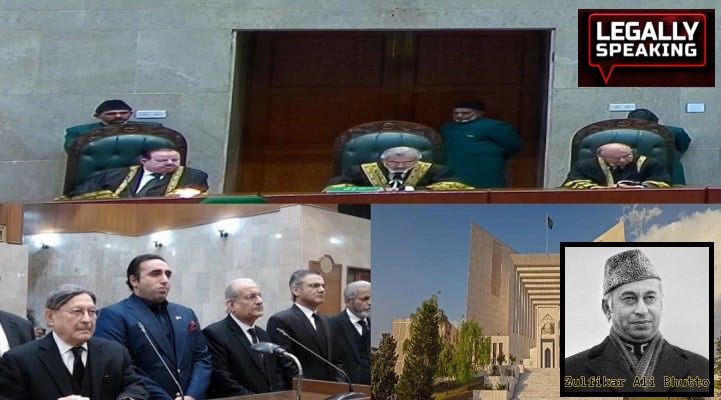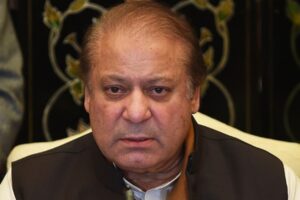
The Supreme Court of Pakistan issued a noteworthy observation on Wednesday, stating that the trial leading to the 1979 verdict that resulted in the execution of former Prime Minister Zulfikar Ali Bhutto failed to adhere to the standards of a “fair trial and due process.” Judicial Faternity pronounced this remark of CJP that, Execution of Zulfikar ali Bhutto was ‘ Extra Judicial Killing’.
Led by Chief Justice of Pakistan (CJP) Qazi Faez Isa, a nine-judge bench, including Justice Sardar Tariq Masood, Justice Syed Mansoor Ali Shah, Justice Yahya Afridi, Justice Amin-ud-Din Khan, Justice Jamal Khan Mandokhel, Justice Muhammad Ali Mazhar, Justice Syed Hasan Azhar Rizvi, and Justice Musarrat Hilali, delivered their much-awaited opinion on the longstanding presidential reference. This reference questioned whether the court could review its verdict, which the PPP and legal experts considered a significant miscarriage of justice.
The proceedings were publicly broadcasted on the Supreme Court’s website and YouTube channel. The reference, filed in April 2011 on behalf of former president Asif Ali Zardari, sought the court’s advisory opinion on revisiting the death sentence imposed on the PPP founder.
Chief Justice Isa, announcing the unanimous opinion, emphasized that the trial and appeal proceedings did not align with the fundamental right to a fair trial and due process, as guaranteed by the Constitution.
He highlighted the importance of acknowledging past judicial errors and striving for accountability and integrity in administering justice. The court affirmed its authority to render opinions on matters of public importance under Article 186 of the Constitution.
The reference provided an opportunity to review the trial, conviction, and sentencing of Mr. Bhutto during General Ziaul Haq’s regime. The court noted that successive governments, including caretaker administrations, continued the inquiry initiated by the PPP government.
While addressing specific questions raised in the reference, the court stated limitations on setting aside the judgment and refrained from commenting on Islamic aspects. Bilawal Bhutto-Zardari, alongside his legal team, welcomed the court’s opinion, calling it historic and expressing anticipation for the detailed reasoning.
Other political figures, lawyers, and activists also commended the court’s acknowledgment of past injustices but urged systemic reforms to prevent such miscarriages of justice in the future. The reference hearing, marked by extensive arguments and evidence submissions, concluded with the court promising a concise order in the following days.





